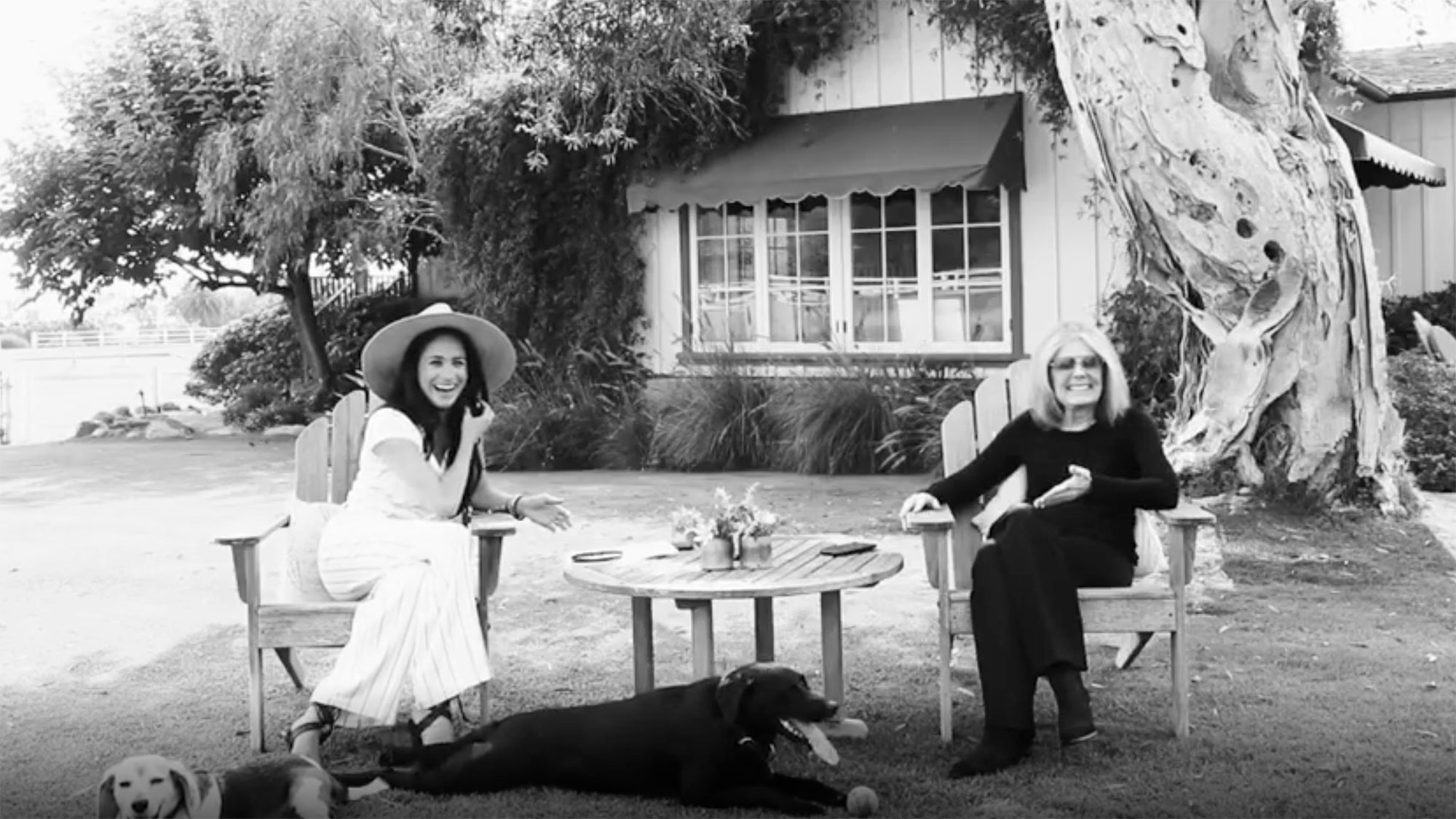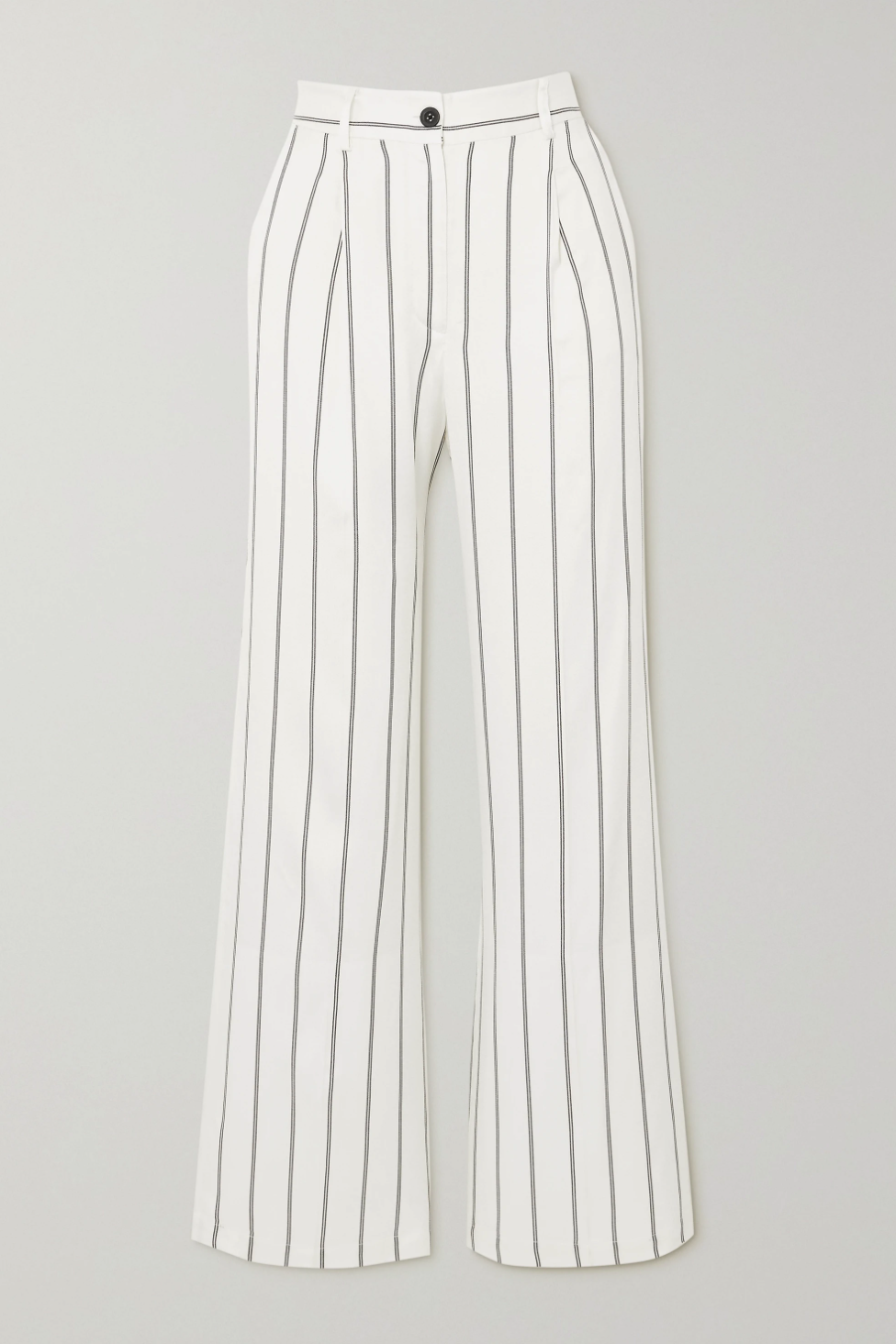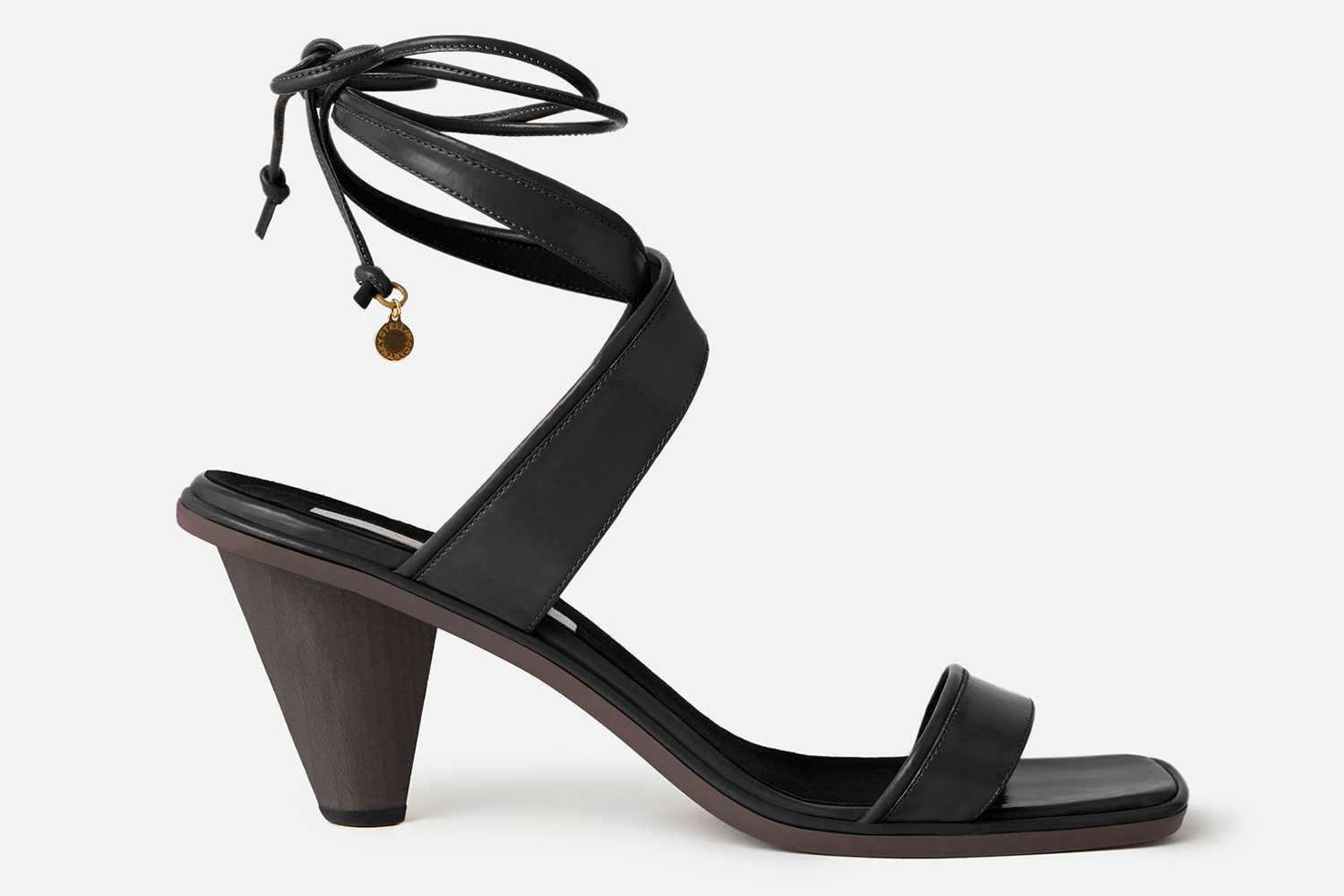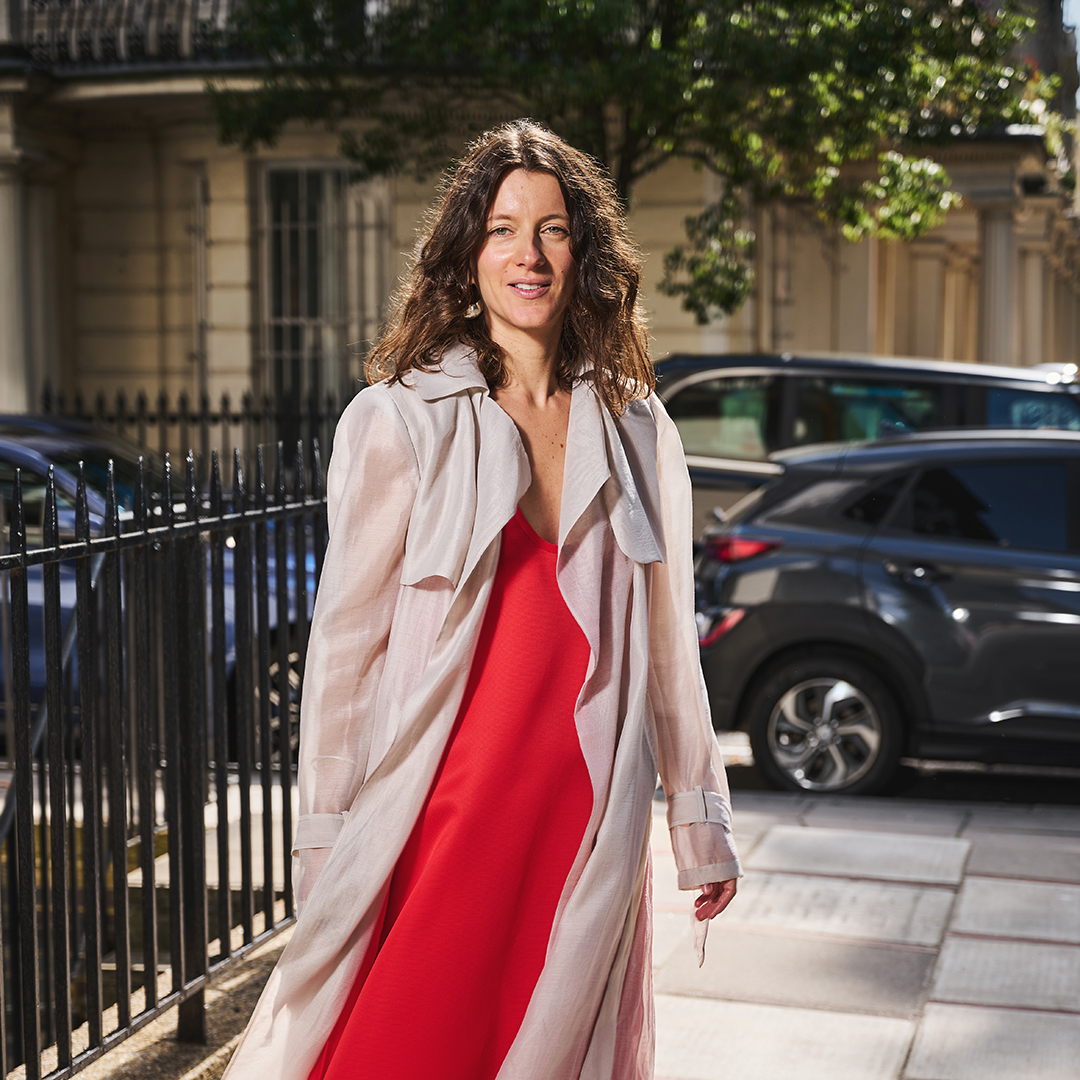The political significance of Meghan Markle's latest outfit


After stepping down from her royal duties, Meghan Markle is making history by opening up about her political views, something which historically royals haven't done, choosing to remain neutral instead.
This week, the Duchess of Sussex is focusing on getting young people to vote in the run up to the Presidential elections later this year. Now she has teamed up with feminist icon Gloria Steinem to discuss representation, why each vote matters and how all women 'are linked, not ranked.'
The interview, which is released later today in America on the MAKERS channel, took place in the backyard of either Meghan's or Gloria's house, to adhere to social distancing regulations.
We've been given a sneak peek already, and both women seem relaxed as they discuss how important voting is for women ('If you don't vote, you don't exist') and how happy Meghan is to be back in the States ('Me too [so glad I'm back], for so many reasons').
For the occasion, Meghan donned a white t-shirt, paired with pinstripe trousers by Anine Bing, and Stella McCartnery sandals, both of which you can still buy, linked below (the sandals are even 50% off in the sale).

Shop now: ANINE BING Ryan striped herringbone-jacquard straight-leg pants for £220 from Net-A-Porter

Shop now: Rhea Sandals for £263 from Stella McCartney
Celebrity news, beauty, fashion advice, and fascinating features, delivered straight to your inbox!
Now some might say that her outfit choice was quite significant. Firstly, because she chose to wear female designers, and her interview focuses on women's right to vote, an interview she is doing with Gloria Steinem, known amongst many things for being the leader and spokeswoman for the American feminist movement in the late 1960s and early 1970.
Secondly, Meghan's outfit is white, which is a colour that has long been associated with the Suffragette movement, earning the nickname 'Suffragette white'. The significance of this has changed over the years, but it was originally thoughts to represent purity, and later members of the movement decided to wear the colour head-to-toe so critics couldn't say they were intimidating or masculine, according to CR.
An all white ensemble was also more inviting for women who wanted to join the cause, as it was an accessible outfit regardless or race or economical status. With everyone wearing white, they also ensured they would stand out when marching in the street.

Penny Goldstone is the Contributing Fashion Editor at Marie Claire UK. She writes about catwalk trends and the latest high street and Instagram sartorial must-haves. She also helms the Women Who Win franchise.
She has worked in fashion for over 10 years, contributing to publications such as Cosmopolitan, Red, Good Housekeeping, and Stylist.